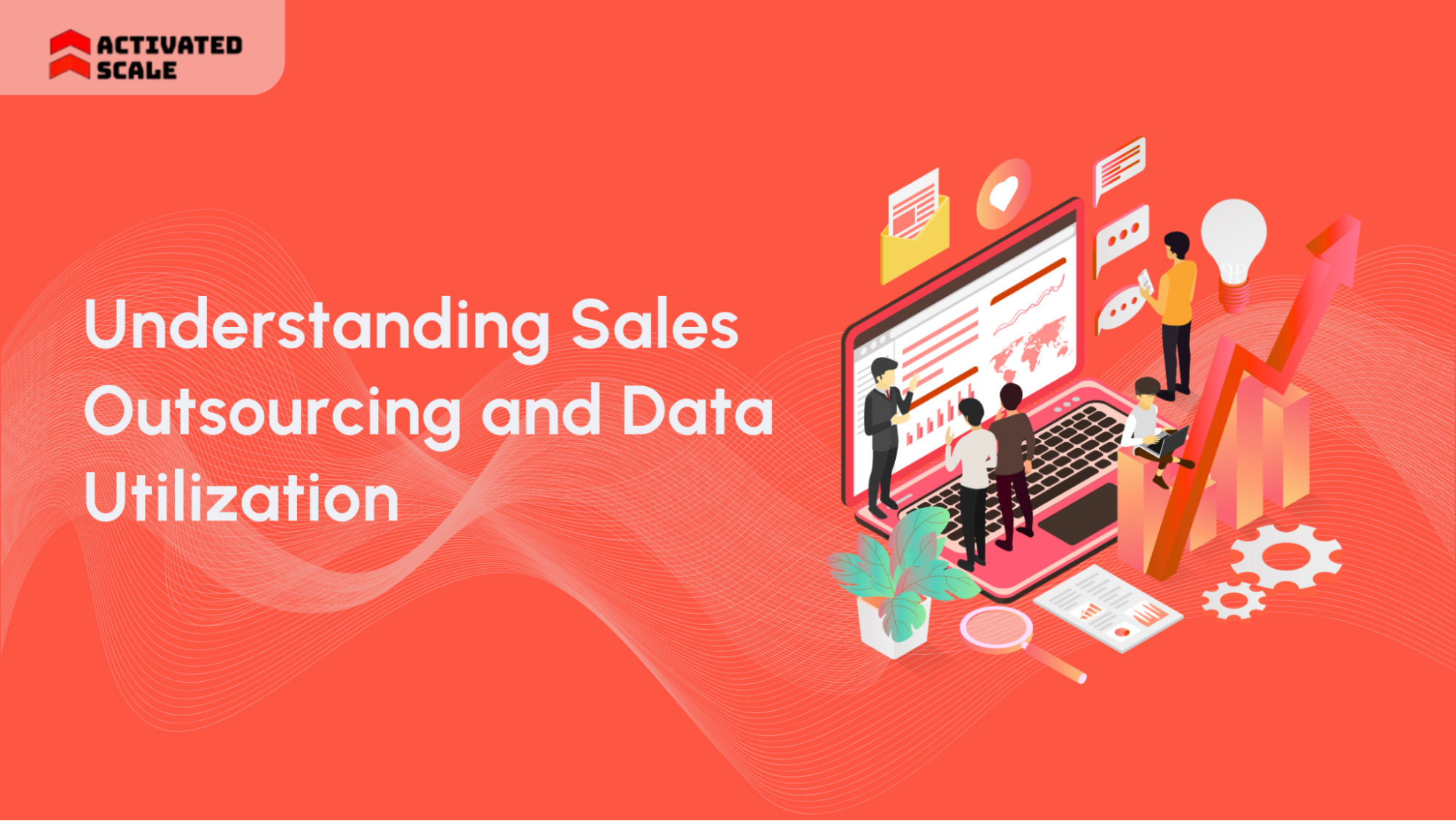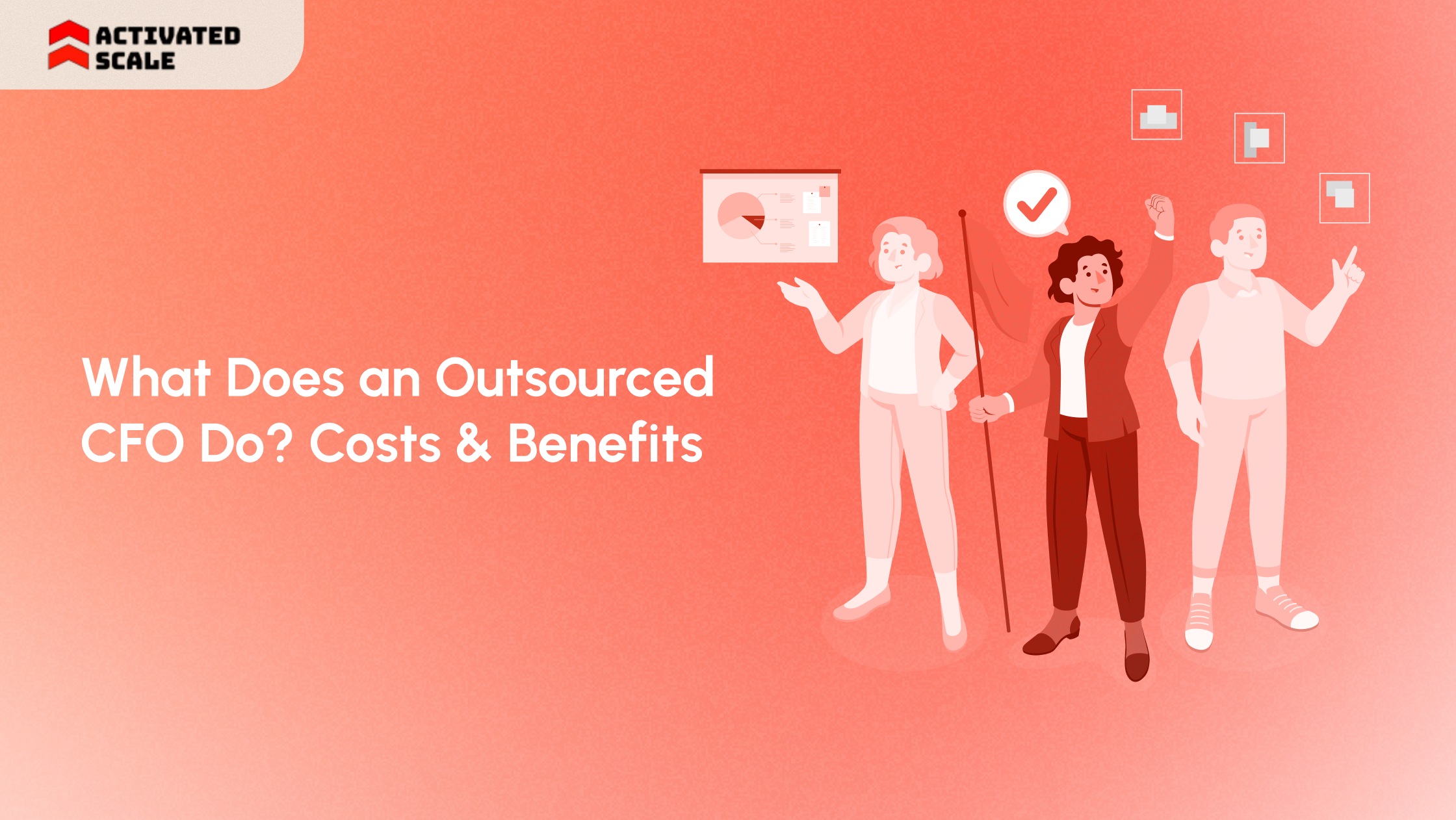What if scaling sales could happen without building a full team from scratch? That’s the idea behind sales outsourcing, where external specialists bring experience, focus, and results.
Outsourcing is gaining momentum. Globally, the business process outsourcing market is projected to reach $525 billion by 2030, and over one-third of small businesses already delegate at least one business process. This highlights growing adoption among companies aiming to expand efficiently.
Companies choose this model for scalability, efficiency, and expertise. Outsourced teams bring trained reps, proven systems, and faster execution, helping internal teams focus on strategic priorities.
In this article, we’ll explore how outsourcing reaches its full potential when powered by sales data. From analytics and forecasting to sharper targeting, data transforms providers into growth partners.
Key Takeaways
- Sales outsourcing simplifies scaling by delegating tasks like lead generation, inside sales, or appointment setting to external experts.
- Data drives effectiveness, from partner selection to segmentation, forecasting, and ongoing optimization.
- Benefits of a data-backed approach include higher-quality leads, faster ramp-up, reduced misalignment, and measurable ROI.
- Implementation requires clear steps: audit existing data, define scope, share securely, set KPIs, and review regularly.
- Challenges can be overcome with data, ensuring alignment, targeted outreach, and transparency between in-house and outsourced teams.
What is Sales Outsourcing?
Sales outsourcing means hiring external experts to manage part or all of your sales process. Full outsourcing covers the entire cycle, while partial outsourcing focuses on specific tasks like lead generation, inside sales, or appointment setting.
This flexible model helps businesses scale without building a large in-house team. However, the real impact emerges when decisions are guided by data, aligning outsourced efforts with strategic objectives.
The Role of Sales Data in Effective Outsourcing
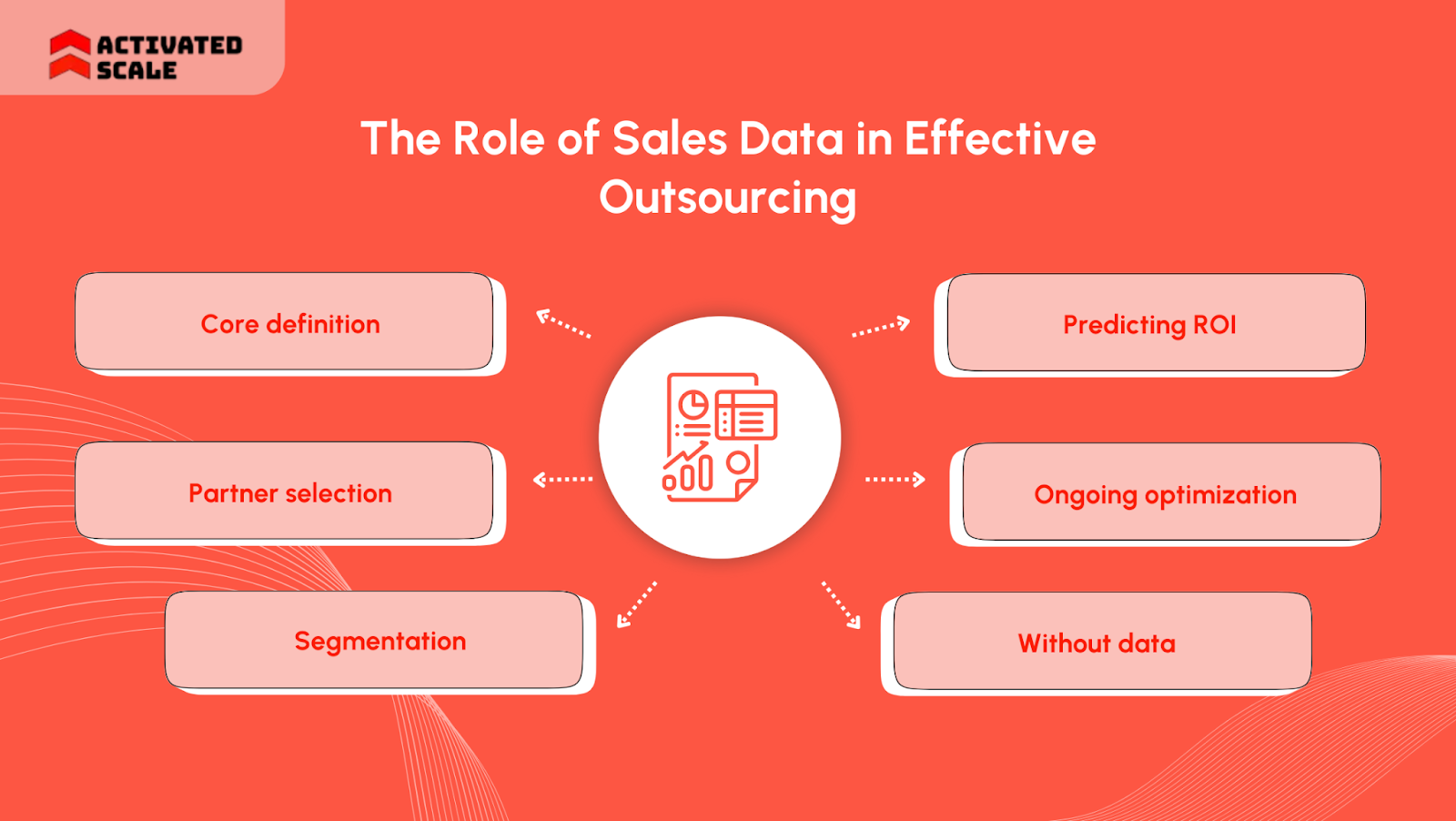
Sales data is the fuel that makes outsourcing effective. It shapes how partners are chosen, how campaigns are run, and how results are measured. Here’s how it works:
- Core definition: CRM entries, pipeline metrics, conversion rates, and customer profiles show what’s working and what’s not.
- Partner selection: Past sales performance, like deal close rates or cycle length, helps assess whether an outsourcing partner is the right fit.
- Segmentation: Outsourced teams perform best when given Ideal Customer Profiles (ICPs) and buyer personas to focus their outreach.
- Predicting ROI: Historical deal size, win rates, and sales cycle data set realistic expectations for outcomes.
- Ongoing optimization: Regular reports and feedback loops between the in-house and outsourced teams ensure continuous improvement.
- Without data: Outsourcing risks poor targeting, mismatched strategies, and wasted effort.
Also Read: Understanding the Sales Engagement Process: Model, Strategy, and Its Importance
With these practices, outsourcing becomes a structured, data-driven process rather than guesswork. The natural next step is to see the concrete benefits that a data-backed approach brings.
Benefits of Data-Backed Sales Outsourcing
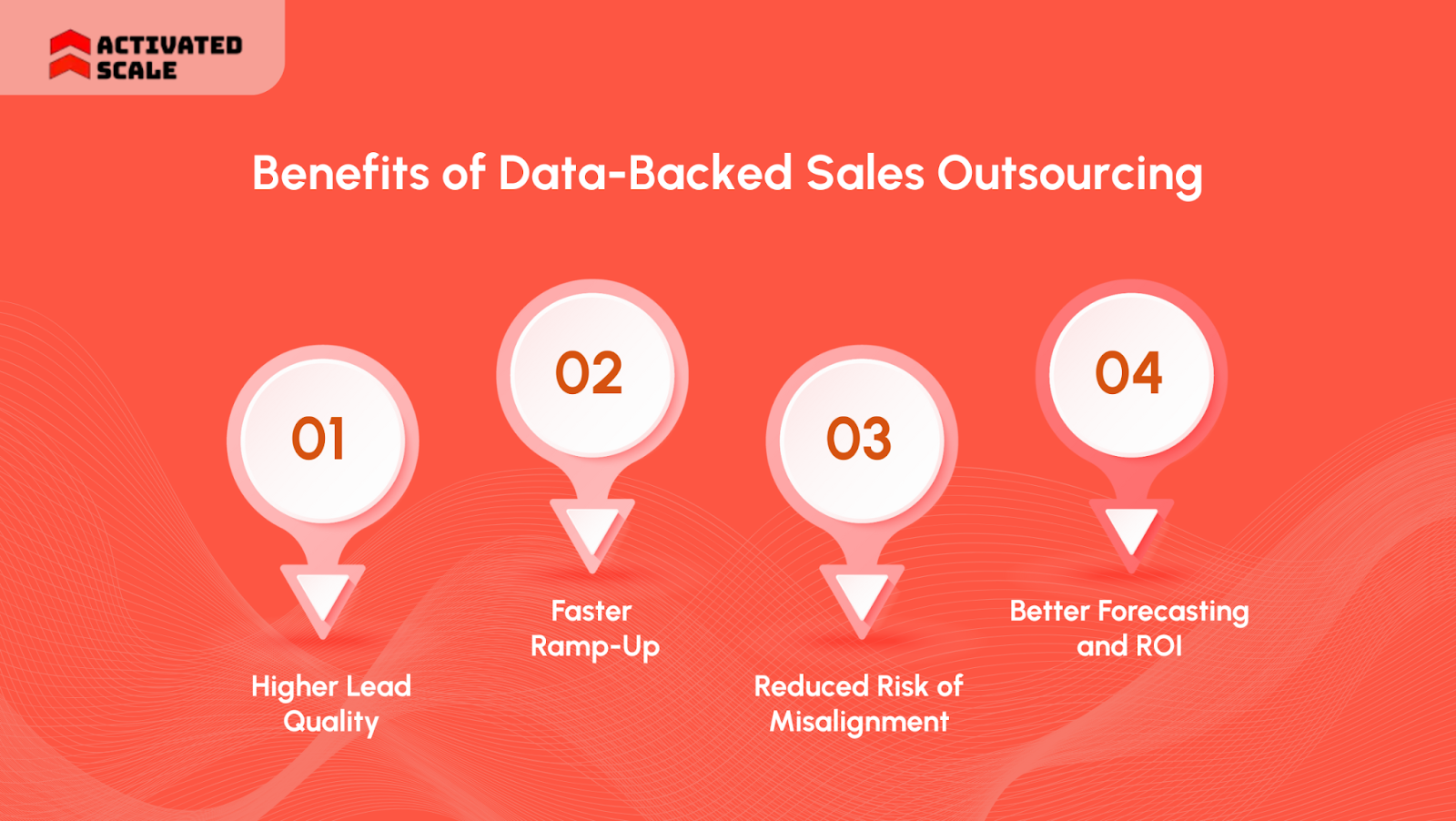
Data turns outsourcing into a precise and predictable process, guiding how teams target prospects, ramp up, and measure success. Here’s how it drives stronger lead quality, faster execution, better alignment, and clearer ROI.
1. Higher Lead Quality
When sales partners work with real customer data, they can target prospects who actually match your market. That means fewer dead-end calls and more conversations with people ready to buy.
Studies show outsourced lead generation often cuts costs by up to 70% while boosting quality by focusing on qualified buyers.
2. Faster Ramp-Up
Outsourced teams come trained, equipped with tools, and supported by proven outreach methods. With data guiding who to contact and how, they can become productive much faster than building a team from scratch.
3. Reduced Risk of Misalignment
Data creates a shared playbook between your company and the outsourcing partner. Clear buyer profiles and performance metrics keep both sides on the same page, lowering the chance of mixed signals or wasted effort.
4. Better Forecasting and ROI
With past deal sizes, cycle times, and win rates on record, outsourced teams can give more reliable forecasts. ROI is easier to measure too. Outsourced lead gen has been shown to drive 43% better outcomes compared to in-house efforts.
These benefits show what’s possible when outsourcing is guided by solid data. To capture them in practice, we’ll understand how to set up and run sales outsourcing with data at the core.
Steps to Implement Sales Outsourcing with Data Utilization
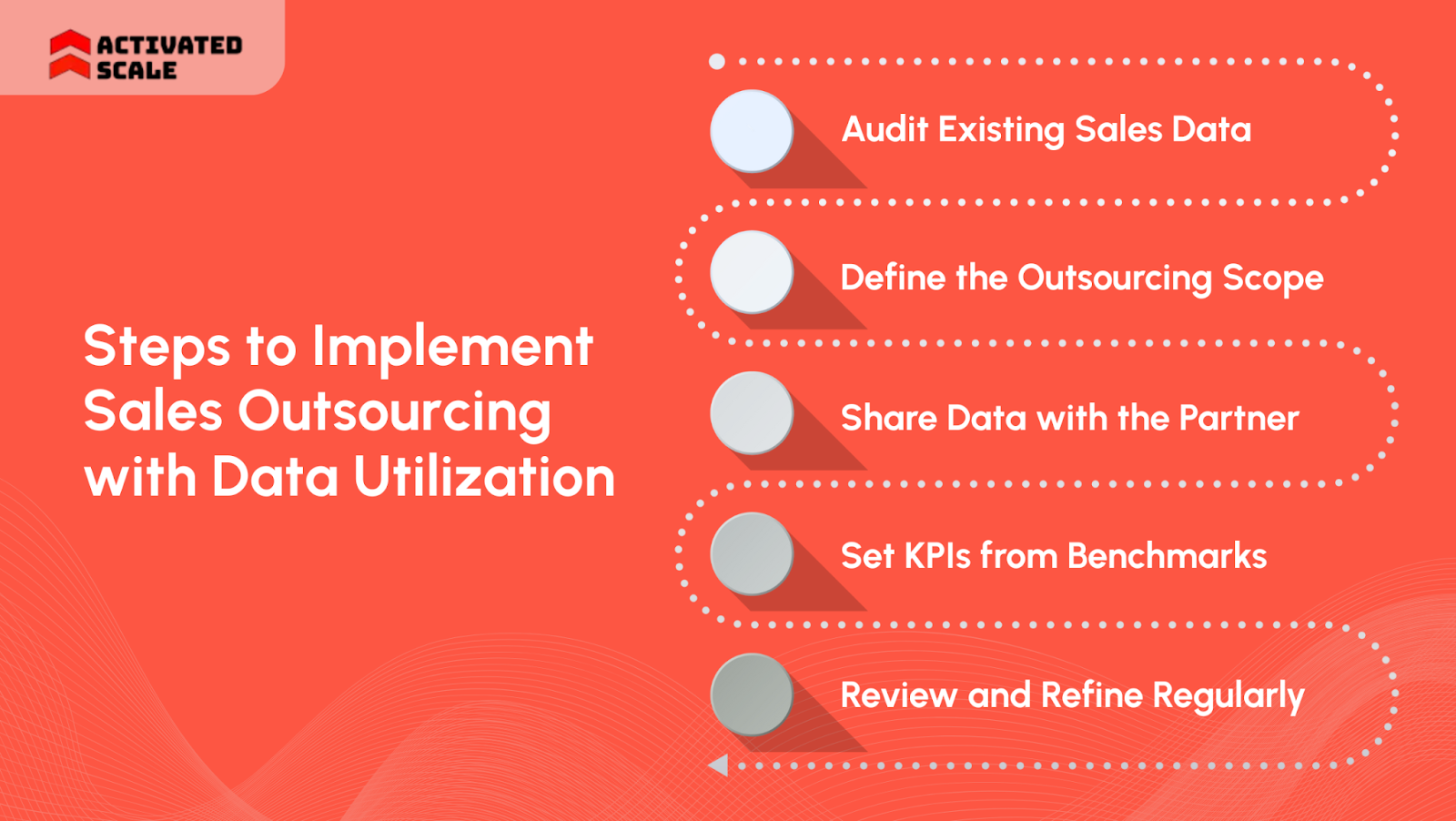
Effective sales outsourcing grows stronger when data guides every decision. Insights on customers, pipelines, and conversions let companies hand off work with full clarity and focus. Here’s how to put this into practice with clear, data-driven steps.
1. Audit Existing Sales Data
Before handing work to an external team, make sure your own data is in shape. Clean up duplicates, fix errors, and merge scattered records so your CRM reflects reality. Reliable data gives the partner a clear view to act effectively.
2. Define the Outsourcing Scope
Decide what the outsourced team will handle. It could be prospecting for new leads, running inside sales calls, or expanding existing accounts. Setting boundaries upfront avoids confusion and keeps both sides accountable.
3. Share Data with the Partner
Your CRM is the playbook. Share it securely. Use safe integrations, control permissions, and follow compliance rules so the partner has what they need without risking data leaks. Trust is built on transparency and protection.
4. Set KPIs from Benchmarks
Use past numbers to shape clear goals. Whether it’s conversion rates, deal cycle length, or win percentages, data-driven KPIs make progress measurable and keep performance expectations realistic.
5. Review and Refine Regularly
Sales outsourcing works best as an ongoing process. Track results, compare them with benchmarks, and adjust strategies together. Regular reviews help both in-house and outsourced teams continue to improve their performance.
Also Read: Steps to Create a Successful B2B Sales Strategy
With these steps in place, outsourcing moves from guesswork to guided action. Even so, challenges can arise, and data plays a key role in overcoming them.
Common Challenges and How Data Solves Them
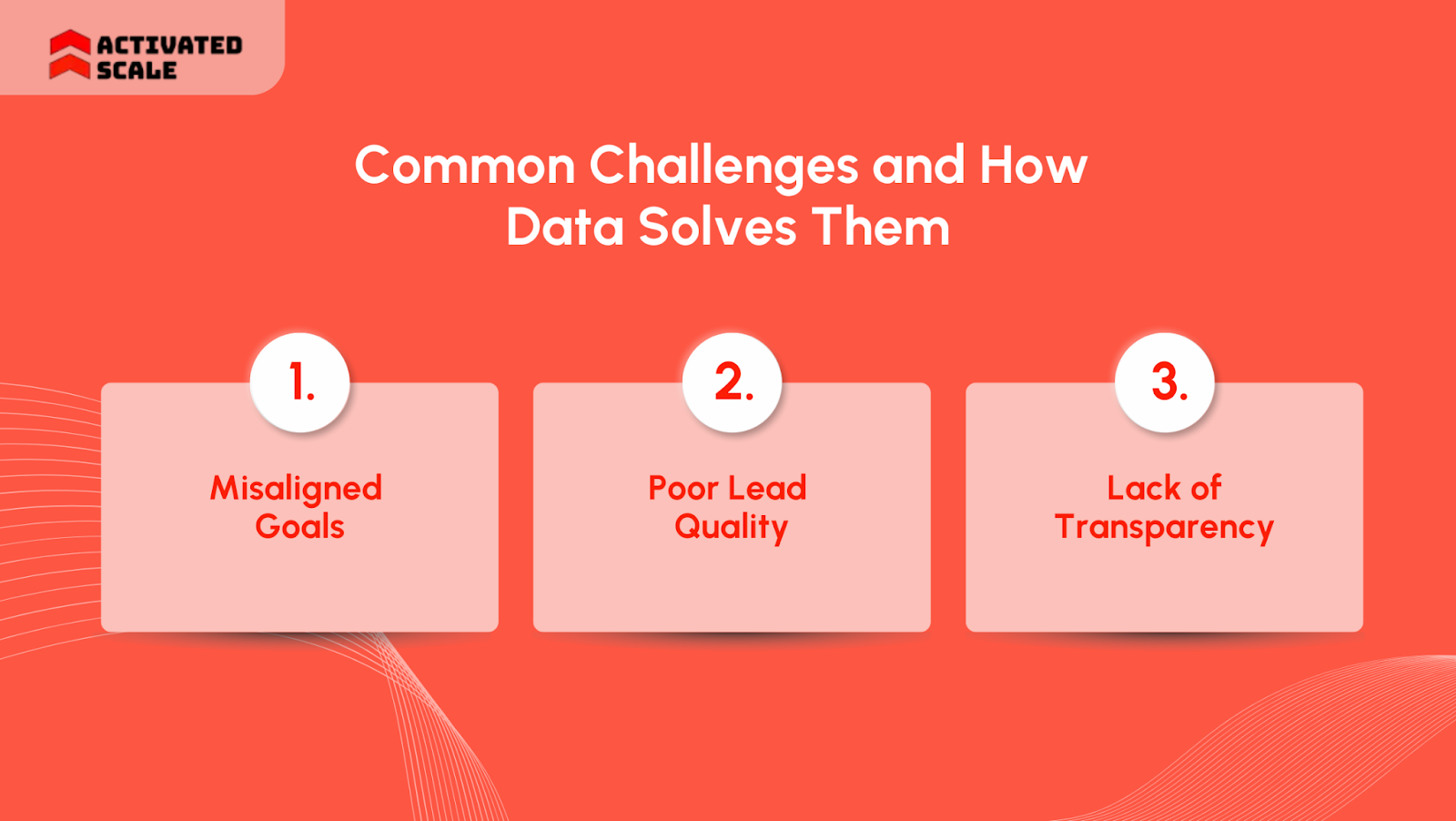
Even the most skilled sales teams can face coordination hurdles when outsourcing. Differences in focus, varying approaches, and unclear progress can slow momentum. The key is making data the shared language between your in-house team and the outsourcer.
Here’s how specific challenges appear and the ways data keeps everything aligned and performing smoothly:
Challenge 1: Misaligned Goals
Teams can pull in different directions when expectations aren’t clear, leaving deals half‑done or stalled.
How Data Solves It:
- Shared metrics like conversion rates, lead quality, and sales cycle length give everyone a common map. With data highlighting progress, both in‑house and outsourced teams know exactly where to focus.
Challenge 2: Poor Lead Quality
Outsourced leads sometimes miss the mark, wasting calls and time chasing prospects who aren’t a fit.
How Data Solves It:
- Providing partners with clear Ideal Customer Profiles and buyer personas enables them to target the right audience. When data guides outreach, every lead is more likely to matter.
Challenge 3: Lack of Transparency
If you can’t see what’s happening, it’s easy to lose trust and miss warning signs.
How Data Solves It:
- Dashboards, reports, and open feedback loops make progress visible and issues obvious. Everyone stays on the same page, and decisions are backed by real numbers rather than guesswork.
Also Read: How to Overcome Common Sales Team Scaling Challenges
With these data-driven solutions in place, companies can move beyond coordination and visibility challenges, turning insights into measurable results. This is where Activated Scale steps in to connect outsourcing efforts with strategic hiring.
Turning Data Into Action: How Activated Scale Bridges Outsourcing and Hiring
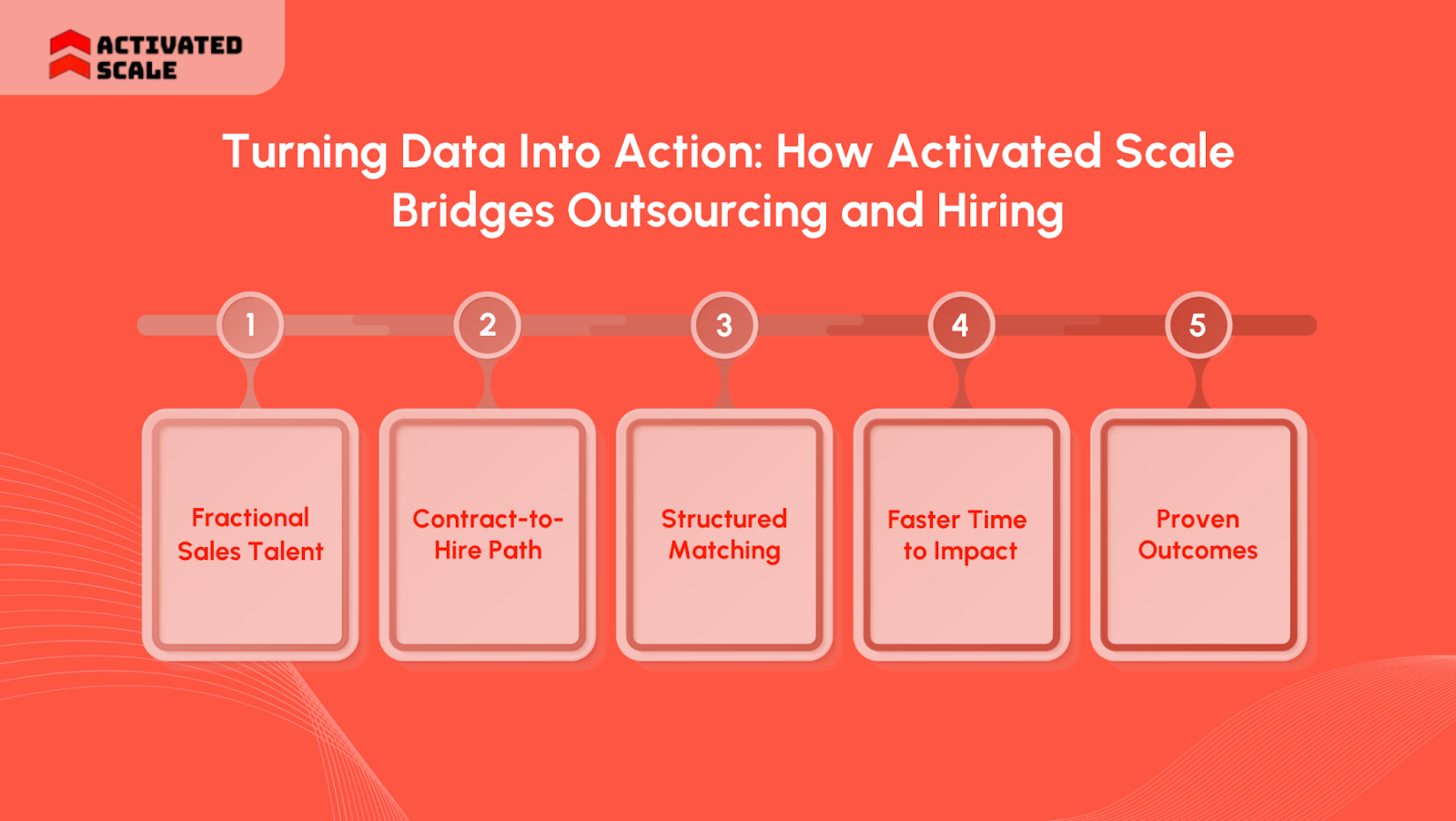
Outsourcing can accelerate sales, but founders often struggle with the decision between outsourcing everything to a vendor or locking in a full-time hire too soon. That’s where Activated Scale fits in.
We offer a middle ground that combines the flexibility of outsourcing with the confidence of performance-based hiring. Here’s how we help startups turn sales data into smarter growth moves:
- Fractional sales talent: Pre-vetted SDRs, AEs, and VPs of Sales who already have experience with similar ICPs, deal sizes, and markets.
- Contract-to-hire path: Instead of a risky permanent hire, founders can validate reps with performance data before making a long-term commitment.
- Structured matching process: A 30-minute strategy call, curated reviews from our 300+ rep network, and selective interviews ensure the right fit before onboarding.
- Faster time to impact: Most clients are up and running in under a week, with reps who plug directly into existing systems and data workflows.
- Proven outcomes: Companies like Windsor have grown average deal size by 4X through our model, showing how data-aligned talent makes a measurable difference.
By blending data-driven execution with a flexible engagement model, we make scaling sales less of a gamble and more of a calculated move.
Conclusion
Outsourcing sales becomes truly effective when every decision is guided by clear, actionable data. With the right insights, companies can align teams, focus on the right prospects, and measure results confidently.
At Activated Scale, we know every startup and scale-up has unique growth goals. That’s why we connect businesses with pre-vetted, U.S.-based sales professionals, SDRs, AEs, or Fractional VPs, who match your needs and pace.
Ready to turn your sales data into real growth? Book a call with us to explore how the right sales talent can scale your team and your results.
FAQs
1. How can startups maintain culture when outsourcing sales?
Even with external teams, culture is maintained by sharing company values, sales philosophy, and customer interaction standards upfront. Regular check-ins and collaborative tools keep outsourced reps aligned with your brand voice.
2. Can outsourcing work for niche or highly technical products?
Yes. By selecting partners with experience in your industry or product type, outsourced teams can quickly understand complex offerings. Supplementing with targeted training ensures they communicate value effectively to specialized buyers.
3. How do I balance in-house and outsourced sales efforts?
Set clear boundaries for responsibilities and establish joint reporting. Outsourced teams can handle top-of-funnel work while in-house reps focus on relationship management or strategic accounts, creating complementary coverage.
4. How can I quickly onboard outsourced sales talent without disrupting current operations?
Activated Scale helps startups and scale-ups onboard pre-vetted SDRs, AEs, or Fractional VPs in under a week. Their structured process ensures reps integrate with your existing systems, workflows, and data, minimizing disruption while keeping sales momentum steady.
The Ultimate Guide to Hiring a Salesperson!
Get the step-by-step guide to hiring, onboarding, and ensuring success!
_edi.png)
